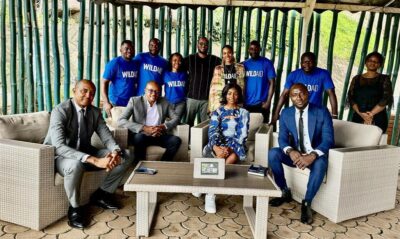
Vision4 and WildAid have announced the launch of Wild Cameroon, a new debate show discussing the country’s spectacular natural heritage and how best to protect it.
Wild Cameroon is a 45-minute show covering all the hot topics around conservation, wildlife and the environment, with some of Cameroon’s leading experts in conservation joined by government officials, representatives of the private sector and ordinary Cameroonians. The first episode will be broadcast on Vision 4 in Cameroon on March 13, 2024, with another episode released every month over the next year.
The monthly meet-up about Cameroon’s natural heritage has been produced in association with the Cameroonian branch of WildAid, a leading international NGO dedicated to ending the illegal trade in wildlife and inspiring people all over the world to do more to protect the environment.
Philippe Boney, the Director of Vision4, recalled the words of Franco-Chinese writer-dramatist Gao Xingian: “Man plunders nature, but nature always ends up taking its revenge.”
“Let’s protect nature and preserve our wildlife,” Boney added, “And let’s connect to awareness-raising media programs, the best form of mass education to reach the greatest number of people.”
In its 12 episodes, Wild Cameroon will tackle the most pressing environmental issues facing the country today, including how to balance economic growth and the environment, how to prevent the illegal wildlife trade and how to involve local communities in conservation, the unsustainable explosion in bushmeat consumption in urban areas, the risk of zoonotic diseases coming from wildlife consumption, the urgent threats facing pangolins and gorillas, and the role of women in conservation.
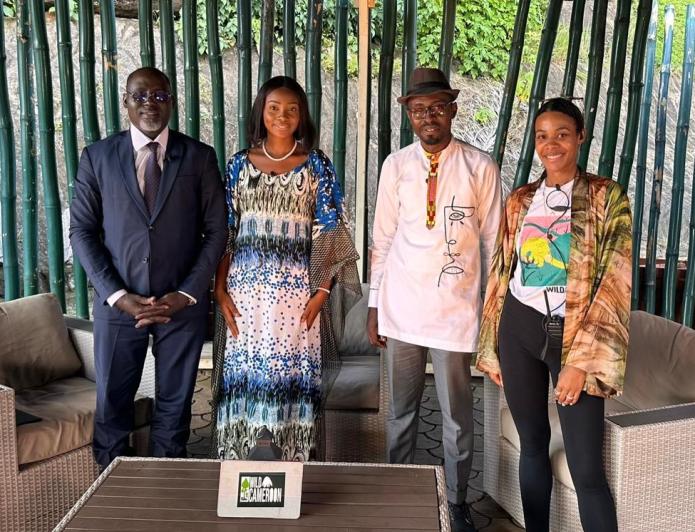

Two of the most important themes that emerged from the debates were the need for Cameroon not only to enforce its laws protecting wildlife and habitats much more effectively but also to strengthen those laws.
“The importance of revising Cameroon’s wildlife law lies in taking into account the development of wildlife crime, whose penalties under the current law are very light, with prison sentences ranging from two months to five years, justifying the need to increase the scale of penalties against poachers,” said Elias Georges Messina, head of the legal department at the Ministry of Forestry and Wildlife (MINFOF).
Wildlife crime normally carries a maximum prison sentence of three years, but penalties can be doubled in certain circumstances, including repeat offenses.
Cameroon has been in the process of revising its 1994 Forestry Wildlife and Fisheries Law for nearly two decades to bring the country’s laws in line with its global commitments and to ensure its forests and wildlife are managed sustainably, balancing economic and environmental needs and protecting the interests of local communities as well the country’s natural heritage and biodiversity. The draft law under consideration would also raise the penalties for wildlife crime to bring them more in line with other countries in the region.
“The fight against wildlife crime in Cameroon would have been more successful today if the process of revising the 1994 Forestry and Wildlife Law had already been completed to take into account the evolution of new threats through more dissuasive sanctions for traffickers and other criminal networks,” said Luc Evouna, wildlife trade officer for Central Africa for TRAFFIC, which also supports wildlife enforcement in Cameroon.
Eric Tah, deputy director and head of the media department at LAGA, which works closely with the government of Cameroon to investigate wildlife crime, also stressed the need to enforce the law as it stands.
“Extinction is real, irreversible, and driven by greedy criminal syndicates,” he said. We urgently need to stop wildlife criminals and forestall calamity for Africa’s endangered species by strengthening the application of the punishment stipulated in the wildlife law.“
Joseph Lekealem, director of fauna and protected areas at MINFOF, said wildlife played an important economic role for Cameroon, creating opportunities for ecotourism, jobs and income.
“Without a balanced and healthy environment, humanity will not survive—as we depend solely on our environment for food, medicine, water, and so much more,” he said. Like elephants helping forests to restore themselves, pangolins protecting soils, and ants and termites from overpopulating, wildlife plays a crucial role in Man’s well-being.”
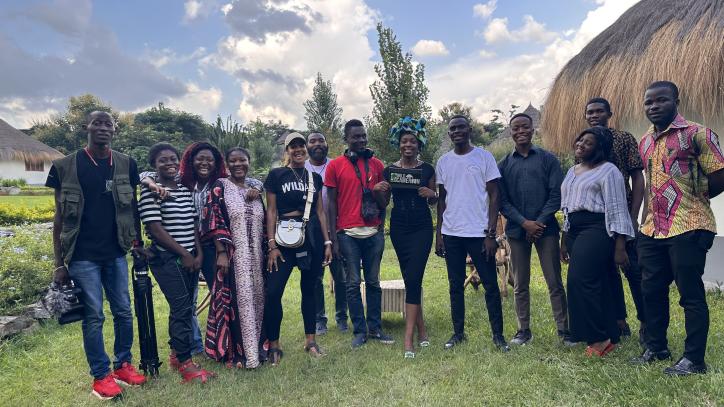

Jennifer Biffot, WildAid’s Francophone Africa representative, added, “Cameroon has a unique natural richness that, if well preserved and fully valued, could help create jobs and develop a new economy that Cameroon would greatly benefit from. Sharing valuable information about the environment is crucial, as our own well-being depends on it.”
“We are delighted to partner with Vision4 to provide a platform for leading conservationists in Cameroon to talk about the vital work they are carrying out to protect nature,” said Simon Denyer, Africa program manager at WildAid. “We hope these programs help to stimulate debate about the important environmental questions facing the country today.”
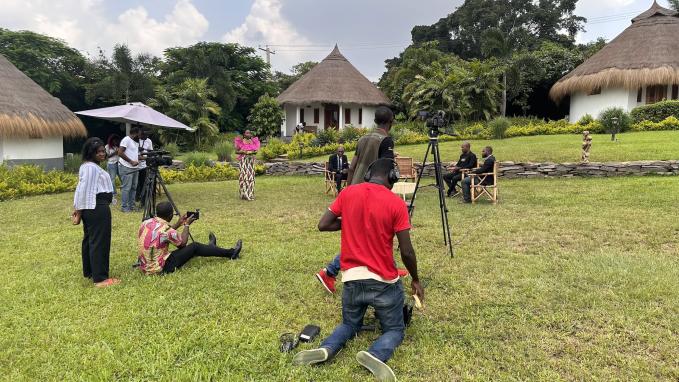

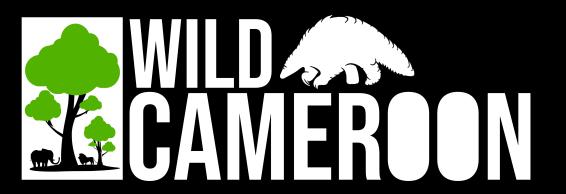

Stay in touch and get the latest WildAid updates.
SIGN UP